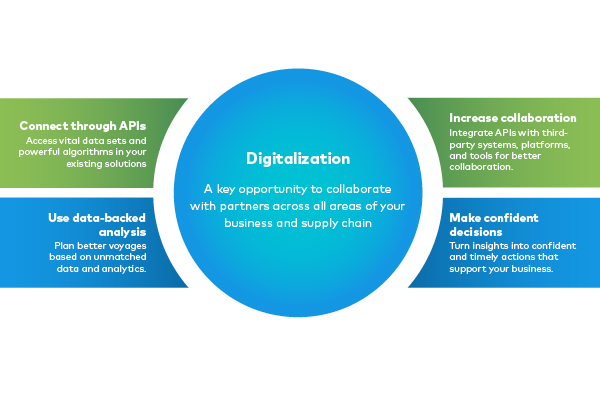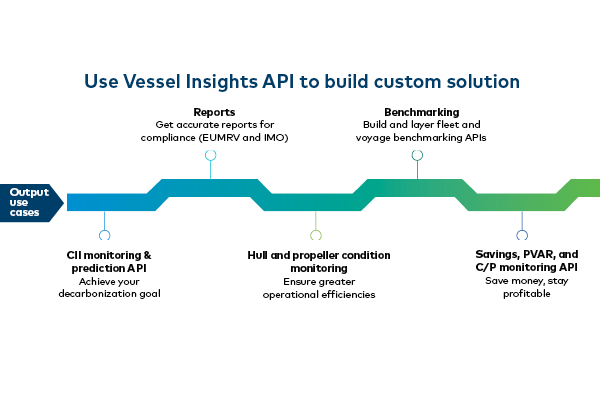Three Competitive Advantages of Vessel Performance Monitoring
Like many industries, shipping currently faces numerous notable challenges, but a recent research report on behalf of DTN revealed longer-term priorities. Non-regulation-driven carbon emissions, decarbonization regulations, and digitalization topped the list of the most significant pressures, according to participants.
“Ship owners and operators must continuously improve the efficiency and environmental performance to adhere to the compliance policies.”
Director, Performance management

To better respond to these challenges, many organizations are turning to vessel performance monitoring platforms, unlocking rich datasets that can help drive greener, more profitable decisions.
Until relatively recently, direct integration of such data into decision-making tools was not the standard, despite the considerable impact of vessel performance information on many aspects of shipping operations and the global supply chain. Typically, it was part of broader digitalization projects, which tend to be complex, time-consuming, and costly.
However, the increased availability of SaaS platforms is changing this dynamic, allowing shipping organizations to accelerate their digitalization journeys and integrate vessel-specific data into their performance and fleet management solutions. Now, the same levels of integration can be achieved without such high investment costs — making vessel performance and monitoring more accessible, allowing the broader industry to benefit.
Here are three areas where vessel performance data can provide critical competitive advantages.
1. Better informed decisions
Services that deliver quality-checked operational data — including weather and AIS data — and seamlessly integrate with other solutions can support more advanced decision-making. And while there are many potential criteria for measuring data quality, the most important are:
- Does the data accurately represent real-world conditions?
- Does the data fit its intended purpose?
It’s important to note data can meet one criterion but not the other. For example, if a vessel bunker or track master data record is fit for creating a report, it may be suitable for that purpose. But what if the data is incomplete, incorrect, or not continuous? Probably not. On the other hand, the recorded data can be complete and continuous but lack sufficient depth or detail needed to provide the level of insight required for an informed decision. Both cases can lead to misinformed decisions and potential business problems.
2. Support of green initiatives
New technologies for greener shipping is this year’s World Maritime theme, “reflecting the need to support a green transition of the maritime sector into a sustainable future, while leaving no one behind.” But before you can plan for the future, you must first recognize your current position. Ship operators require up-to-the-minute data on emissions to determine whether they have some leeway or need to cut immediately. As new regulations come onboard and operators adjust their strategies, this level of understanding is invaluable.
The shipping sector’s regulation changes make it increasingly vital to manage vessel performance, not just track it. For example, the CII regulation means performance must improve by specific percentage points each year. Vessel operators must balance their goals of maximizing performance and profit with their obligations to comply with emissions regulations. Besides day-to-day rules around greenhouse gas (GHG) emissions, the maritime industry is also working towards upcoming IMO 2050, CII, and EU ETS regulations.
3. Improved benchmarking
All shipping operational data needs benchmarking against weather data for fair comparisons. Performance benchmarking is an essential step in improving a vessel’s operating performance. The process provides information on how the ship’s as-built performance characteristics compare and whether further consideration should be given to retrofit solutions to enhance energy efficiency.
For vessels in service, accurate performance information is often lacking. As a foundational requirement, this means high-value, quality-checked data complemented by pinpoint-accurate weather data. This standard ensures access to excellent data as an asset for basing decisions and advanced analytics. Benchmarking generally allows ship owners and managers to identify energy-saving opportunities and make informed choices, from design to operation.
Build a better performance platform
Download our new guide to learn how quality-checked vessel data can fuel custom performance and monitoring platforms.











